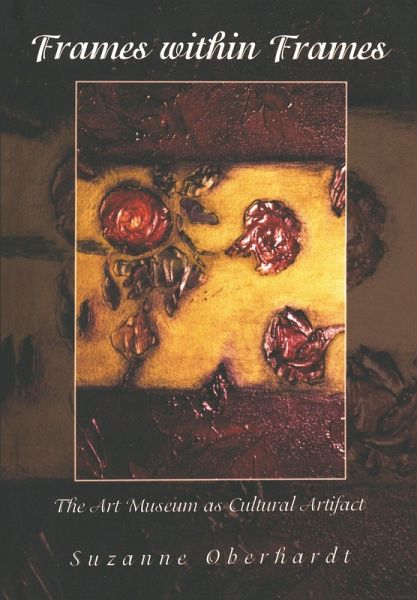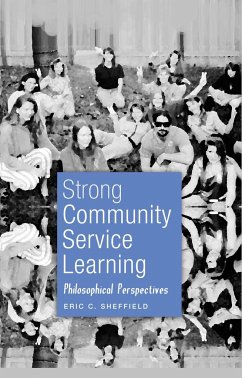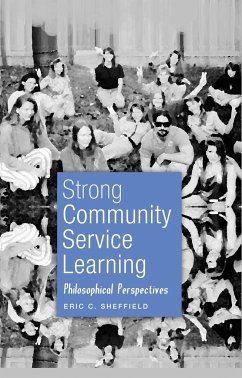
Frames within Frames
The Art Museum as Cultural Artifact
Herausgegeben: Steinberg, Shirley R.; Kincheloe, Joe L.
Versandkostenfrei!
Versandfertig in 6-10 Tagen
36,55 €
inkl. MwSt.

PAYBACK Punkte
0 °P sammeln!
The art museum has changed shape. Its bricks have been flattened on paper, celluloid, and plastic and diffused into virtual spaces. The relationship between flesh and environment has been irrevocably changed as people no longer have to attend the architectural structure of the art museum to know the art museum. It recurs infinitely in our daily lives - on television, movie, and computer screens; in books and magazines; and on urban artifacts from matchbook covers to billboards. These representations may not be real art museums per se, but they provide the basis upon which most people now parta...
The art museum has changed shape. Its bricks have been flattened on paper, celluloid, and plastic and diffused into virtual spaces. The relationship between flesh and environment has been irrevocably changed as people no longer have to attend the architectural structure of the art museum to know the art museum. It recurs infinitely in our daily lives - on television, movie, and computer screens; in books and magazines; and on urban artifacts from matchbook covers to billboards. These representations may not be real art museums per se, but they provide the basis upon which most people now partake of the museum's sacred rituals. Suzanne Oberhardt offers a new way of seeing the art museum as it is transformed and reinvented in the twenty-first century.












